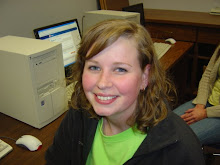
Randy Pausch was an inspiring man, author of The Last Lecture Really Achieving your Childhood Dreams. He had a PhD. in Computer Science from Carnegie Mellon University, Pittsburgh Pennsylvania. He also taught computer science and human-computer interaction at CMU.
The Last Lecture was an awesome show, and very well put together. He had stated what he was NOT going to talk about and that was "The elephant in the room" his cancer. The presentation was broken down into 3 parts: His Childhood Dreams, which were being in zero gravity, playing in the NFL, winning stuffed animals, being Captain Kirk, and being a Disney Imagineer. Next was How to achieve your dreams, and lessons learned. Throughout the entire lecture he never once felt sorry for himself, it was all about how happy he was to be alive.
In October of 2007 Randy appeared on Oprah, which is not something that I normally watch however I had to the TV on and heard him telling his story so I watched. I was glued the whole time it was very moving to see how positive he was even after knowing that he was going to die soon. He said Brick walls are there for a reason: they let us prove how badly we want things. To hear a healthy person tell you something like that is somewhat moving but when it comes from someone who has 3 little babies, and is losing everything, it makes you think.
The one quote that I will take with me is "Experience is what you get, when you didn't get what you wanted". It was amazing to see just how much he loved his family, his friends, and his work you could see it in the pictures of the presentation. He had a lot of "experience" in his life and he doesn't really tell you until the end that he didn't get into Brown or Carnegie Mellon right off the bat. Those were the lessons that he was sharing. My favorite part was the very end he said the other head fake was this wasn't for you (meaning his students and colleges)it was meant for his children. For their viewing when they get older to see that their father lived life to the fullest which is the greatest lesson he could teach them.








